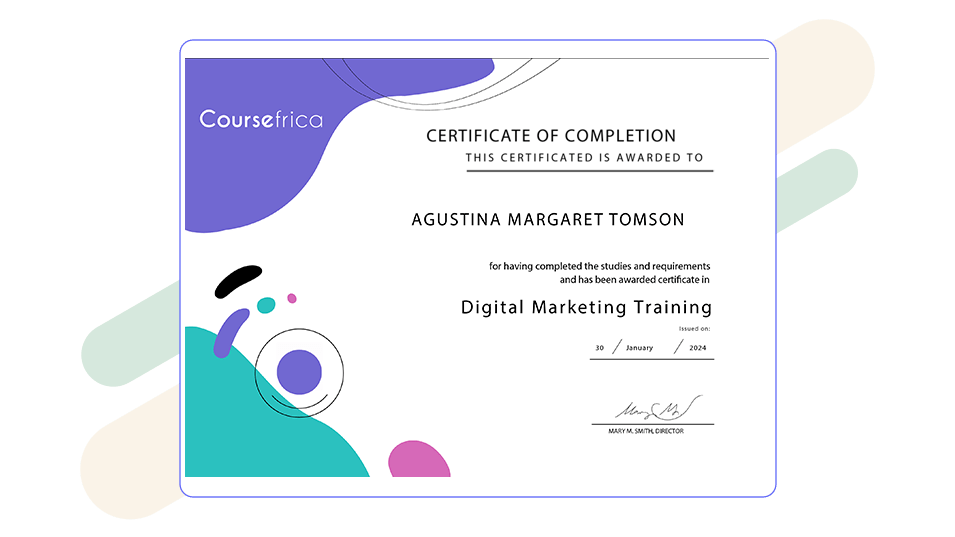
Lean Six Sigma Green Belt
Lean Six Sigma Green Belt Certification in London
If you are an individual who is interested in upskilling or reskilling your current knowledge domain, keep your interests no longer at bay! StudySail’s Lean Six Sigma Green Belt certification is a comprehensive course that will equip you with knowledge on enhancing your service quality for your organization. You will explore how to:
- Implement cost-saving initiatives by streamlining operations
- Lead process improvement projects that drive measurable results
- Foster a culture of continuous improvement within your organization
- Reduce defects and variation to ensure consistent quality outcomes
- Analyze data statistically to make informed, data-driven decisions
- Identify and eliminate waste in processes to enhance efficiency

UPCOMING CLASSES
SELECT AN UPCOMING CLASS
LEAN SIX SIGMA GREEN CERTIFICATION HIGHLIGHTS
The Most Effective Lean Six Sigma Green Course in United Kingdom
High-class engagement both online and offline
Practical statistical software experience tackling real-life project challenges
Q&A webinars with experts to give and receive feedback
Group problem solving stimulating project work experience
Explore the recent trends in the evolving world of AI, project development, and management
Evaluate privacy and ethical considerations for personal and organizational security
UPCOMING CLASSES
SELECT AN UPCOMING CLASS
Lean Six Sigma Green Belt Curriculum
WHAT WILL I LEARN?
Module Info and Overview
This is the first introductory module that will explore the foundational principles of project management. It will provide a comprehensive overview of what project management is, what it entails, and its significance in different industries. You will also learn about the project life cycle, key terminologies, and the importance of effective project management. This is foundational knowledge that will set the stage for deeper exploration into different practices and methodologies. You will be introduced to:
- The definition and importance of project management
- A comprehensive overview of a project life cycle
- Key project management terminologies
- The specific roles of a project manager
- Project scope, time, cost, quality, and project success criteria
- Introduction to various project management terminologies like Agile
- The impact of effective project management on business outcomes
Module Info and Overview
Project integration management is the group that ensures all aspects of a project are well coordinated and integrated. This topic will guide you through all the processes needed to ensure proper planning, execution, and control of a project. You will learn how to develop a project plan that aligns with business goals, manage a product from beginning to end and ensure that the project is successful. You will learn:
- How to develop a project charter
- How to create a project management plan that aligns with business goals
- How to direct and manage project work to deliver value
- Monitoring and controlling project work
- How to close a project phase successfully
- How to use different tools for integration management
- How to manage stakeholder engagement, conflicts, and resolutions
- Managing competing objectives and stakeholder expectations
Module Info and Overview
Get ready to learn how to manage all the work required to complete a project successfully. We will cover how to create a scope statement, develop a work breakdown structure, and manage scope changes efficiently. We will delve into:
- Defining a project scope and objectives
- Creating a scope management plan with a work breakdown structure
- Validating and controlling a project scope changes
- The techniques for preventing and managing scope creep
- Tools for scoop management and best practices
- Managing scope related risks
- Documenting the scope management plans and closing the scope
Module Info and Overview
Project time management involves creating a project schedule, estimating activity duration, and controlling project activities to ensure that projects are completed on time. In this topic, you will learn how to use scheduling tools and techniques to manage project timelines effectively. You will explore:
- The importance of time management in projects
- How to define project activities and estimate duration
- Developing a project schedule and techniques for schedule compression
- Monitoring and controlling project schedules
- Tools for time management and how to manage delays and schedule changes
- Communicating timelines to stakeholders and other team members
Module Info and Overview
In this topic, you will be learning how to plan, estimate, and control project costs to ensure that the project is completed within the approved budget. You will be equipped with the techniques to manage finances for project success. By the end of this topic, you will be able to:
- Understand the importance of cost management in projects
- Develop a cost management plan and estimate project costs
- Create a budget and use cost control techniques to monitor expenditure
- Manage cost overruns and the tools for cost management
- Determine the budget goals achieved at the completion
- Present financial reports to stakeholders
Module Info and Overview
Get ready to cover the principles of quality management that ensure that project goals are met while adhering to quality requirements. This topic will teach you how to develop a quality management plan, conduct quality assurance, and ensure that customers are satisfied.You will also learn how to establish quality standards and quality control processes for the success of the project. You will delve into:
- Understanding quality management principles
- Planning for project quality and implementing quality control processes
- Tools and techniques for performing quality control checks
- Techniques for monitoring project quality and areas of improvement
- How to conduct quality audits and measure performance against quality standards
- Handling issues and risks related to the quality of a project
Module Info and Overview
This module delves into how to create a team development plan, manage team performance, and address conflicts. It deals with organizing, managing, and developing team members for specific projects. You will learn how to manage project teams to ensure team members are working towards the same goal. We will cover:
- The importance of human resource management in projects
- Developing a human resource management plan
- The different roles and responsibilities of team members in a project
- The best techniques for building motivated teams
- How to resolve conflict within teams and the importance of effective communication
- Performance management and appraisal methods
Module Info and Overview
Communication is one of the key components when it comes to running a successful project and this topic explores the different ways to communicate effectively to team members, stakeholders, or investors. You will discuss communication planning, how to distribute information, and reporting performance to ensure everyone is informed and engaged. You will also learn:
- The importance of communicating effectively in projects
- How to develop a communication management plan
- The best techniques for communicating with stakeholders
- Different tools and methods of distributing information
- How to manage communication barriers and feedback in teams
- Performance reporting techniques and crisis communication strategies
Module Info and Overview
In this topic, you will learn how to identify risks, analyze them and respond to them effectively. We will explore risk management plans, risk management techniques, and the strategies for mitigating the risks to ensure the project is successful. Get ready to:
- Learn how to create a risk management plan
- Explore the techniques for identifying project risks
- Understand the difference between qualitative and quantitative risk analysis
- Learn how to respond to risks and resolve them efficiently
- Monitor projects to catch any risks early and put them under control
- Learn different tools for risk management such as risk registers
- Discuss the best practices for creating a risk-aware culture within your teams
Module Info and Overview
In this final topic, you will comprehensively explore the processes necessary for acquiring goods and services from external sources as well as engaging stakeholders throughout the project life cycle. This topic will teach you how to manage vendor contracts, and planning procurement to ensure you get the right resources at the right cost for project success. You will also learn how to understand stakeholder needs, and expectations and communicate with them, By the end of this topic, you will :
- Be able to plan procurement activities and develop a plan
- Conduct market research, prepare documents, and evaluate vendor proposals
- Manage contracts and vendor relationships
- Monitor procurement performance and handle procurement risks
- Analyze stakeholder needs and expectations
- Engage stakeholders effectively in addressing their concerns
- Report project progress and performance to stakeholders efficiently
- Resolve stakeholder conflicts and evaluate satisfaction
WHY STUDYSAIL
The StudySail Advantage
Interactive Learning Experience
Interact with your peers while working together on various projects and group discussions
Efficient Career Guidance and Support
Gain expansive career options and insights on the correct path to follow in your career
Access to Industry Professionals
Highly qualified and experienced professionals who take you through the courses and answer any questions that you may have
Affordable Certification Training
StudySail offers PMP training at an affordable price
Efficient Customer Support
Benefit from our well-trained customer support to help throughout your learning experience
Job Hunt Support
Get personalized coaching with job placements and interview preparation
WHAT YOU’LL LEARN IN THIS LEAN SIX SIGMA GREEN BELT TRAINING
Learning Objectives
Fundamental Concepts of Lean Six Sigma
Gain a solid foundation in the principles and concepts of Lean Sis Sigma in preparation for other processes and techniques
Develop Strong Data Analysis Skills
Be equipped with the knowledge on how to collect data, analyze and interpret data using statistical tools
Be a pro at DMAIC methodology
Be proficient in the define, measure, analyze, improve and control (DMAIC) framework and its implementation in projects
Learn to Identify and Eliminate Waste
Understand the different types of waste that occur in processes and the strategies to minimize them
Develop Effective Problem Solving Skills
Understand how to identify, assess, and mitigate risks that could impact a project
Improve Project Management Skills
Deepen the skills to manage Lean Six Sigma projects effectively as a team leader
PREREQUISITES FOR LEAN SIX SIGMA GREEN BELT CERTIFICATION COURSE
Prerequisites and Eligibility
- There are no specific requirements that you have to meet to get a Lean Six Sigma Green Belt certification. Anyone can get the Lean Six Sigma Green Belt certification as long as you have interest in the Six Sigma methodology and have an interest in statistics and analysis.
- To get more information, please view the FAQs.

WHO SHOULD ATTEND THE LEAN SIX SIGMA GREEN BELT COURSE ONLINE
Who This Course Is For
- Process Engineers
- Project Managers
- Analysts
- Reliability Engineers
- Quality Engineers
- Mechanical Engineers
- Supply Chain Managers
- Production Engineers
- Six Sigma Consultants

GET THE LEAN SIX SIGMA GREEN CERTIFICATION
Earn the Coveted Lean Six Sigma Green Certification
The Lean Six Sigma Green Belt Certification is one that equips you with skills important in improving the quality of your services. Studysail’s comprehensive course will enable you to display your skills in problem solving, process improvement techniques, statistical analysis, lean tools, change management, quality management and using Six Sigma tools to improve the quality of your services. Furthermore, you will have an opportunity to join the growing global community of Six Sigma professionals.

FREQUENTLY ASKED QUESTIONS
PMP Training & Exams
What is the Lean Six Sigma Green Belt certification?
The Lean Six Sigma Green Belt Certification is a certification which aims to equip learners with a thorough understanding of all aspects of the Lean Six Sigma Method contained within the phases of Define, Measure, Analyze, IMprove and Control as defined by the Lean Six Sigma Green Belt Body of Knowledge. A Green Belt understands how to perform at a high level of proficiency.
What are the benefits of learning Lean Six Sigma Green Belt in Nairobi?
Nairobi is a rapidly growing town with many industries both old and new. There is a demand for qualified professionals to take over these and provide good services to both customers and stakeholders. The Lean Six Sigma Green Belt certification aims to provide individuals with the necessary skills to thrive in the industry. The following are benefits of gaining the certification:
- A Lean Six Sigma Green Belt certification can enhance your career and make you a more attractive candidate for roles in project management, operations and quality control.
- You will have a higher earning potential due to your ability to contribute eto cst savings and improvements.
- You will gain improved problem solving skills which are important when making decisions.
- Training often involves collaboration with other individuals which can help you build a network in the business community.
- You can enhance your analytical and leadership skills thus contributing to personal growth.
What training options are there for Lean Six Sigma Green Belt enthusiasts?
There are several training options for you to choose from in preparation for your Green Belt exam. The following are some popular options available:
- Online courses: you can decide to take an online course at the convenience of your home if you are opposed to attending physical classes. There are two options you can choose from either self-paced or live online courses. Self-paced courses offer flexibility since you learn at your own pace while live instructions provide real time instructions and feedback from experienced proessionals.
- In-person training: This is the traditional classroom setting where you attend live classes together with other learners. It provides you with hands-on experience and opportunities to interact with other professionals. Some companies also offer training to their employees which is a very suitable pace to get hands-on experience.
- Books and Resources: There are many books available that cover the Lean Sigma Green Belt syllabus. There is also the ‘Body of Knowledge’ which explains in detail the six Sigma methodology.
How many times can you retake the Lean Six Sigma Green Belt exam?
There is no limitation to the number of times you can attempt the Six Sigma exam. You can try as many times as possible until you attain the pass mark. There is also no additional cost that you will incur when retaking the exam.
What is the pass rate for the Lean Six Sigma Green Belt exam?
The pass rate for the Lean Six Sigma Green Belt exam is 70% - 100%. Many candidates have been able to pass the exam with only one try. You should prepare for the exam diligently and ensure that you understand the concepts presented during the course.
What is the validity of the Lean Six Sigma Green Belt certificate?
A Lean Six Sigma Green Belt certificate is valid for a lifetime. As long as you pass the exam and get certified, you will not have to take other exams to renew your certification. In case of a new version of a certification, you can take an exam on that version without undergoing training.
How hard is the Lean Six Sigma Green Belt exam?
A Six Sigma exam can be quite challenging especially since there is some statistical analysis involved in the curriculum. However, it is not difficult to pass the exam. Prepare thoroughly for the exam and ensure that you get enough rest before the day of the exam so that your mind is fresh for the exam.
Is the Lean Six Sigma Green Belt exam multiple choice?
Yes, the exam is a multiple-choice open book exam. The exam also features true/false questions from the major sections of “Body of Knowledge” which is the main syllabus for the certification. It is important to remember that you can refer to the course materials during the exam so ensure that you have a proper understanding of their contents.
How long is the Lean Six Sigma Green Belt exam?
The Lean Six Sigma Green Belt exam has a duration of two hours. During this period, you are supposed to answer all the questions provided. Prioritize your time properly and answer the questions to the best of your ability. You can take the exam online or at one of the professional testing centers.
Can I do a Six Sigma Green Belt without a Yellow Belt?
Yes, you can. A Yellow Belt certificate is not a prerequisite for Green Belt certification. The Yellow Belt course is meant to provide the learners with a strong foundation in Six Sigma methodology so they can effectively support improvement efforts in the organization.
Is Lean Six Sigma Green Belt internationally recognized?
Yes, Lean Six Sigma Green Belt is a globally recognized certification that benefits professionals who want to grow in process management and quality improvement. Most industries worldwide are continuously improving their operational efficiency while minimizing defects hence knowledge in Six Sigma plays an important role for any individual in that field.
What are the prerequisites of Lean Six Sigma Green Belt certification?
There are no prerequisites required in order to obtain a Lean Six Sigma Green Belt Exam. However, you should have an interest in analyzing and solving quality problems. You should also be ready to subject yourself to different approaches when solving problems and consider various factors.
How do I prepare for a Lean Six Sigma Green Belt exam?
If you want to successfully obtain your Lean Six Sigma Green Belt certification, you should obtain Six Sigma training through a qualified training provider or study the free self-study guide that is issued. You can also familiarize or re-familiarize yourself with the Lean Six Sigma Green Belt methodology and “Body of Knowledge”.
What is the difference between Yellow Belt and Green Belt Six Sigma?
Yellow-Belt courses introduce you to the Lean way of thinking and are specifically designed for team members working on innovative projects. On the other hand, Green Belt courses are designed for future project managers of innovative projects where you will learn how to deliver innovative projects.
How many belts are there in Lean Six Sigma Certification?
There are several belts in the Six Sigma methodology and each one represents a specific training level. They include White Belts who have a basic understanding of Six Sigma concepts, Yellow Belts who have a fundamental understanding of Six Sigma and Lean methodologies, Green Belts who have a more in-depth understanding of Six Sigma concepts and can lead projects, Black Belts shave an advanced understanding and finally Master Black Belts have a deep expertise in Six Sigma principles and tools.

Lean Six Sigma Green Belt Career Related FAQs in London
How will this certification contribute to my career growth?
A Lean Six Sigma Green Belt Certification will boost your career in many ways as it is an essential asset for anyone looking to start or grow their career in quality management and process improvement. Having this certification shows that you can improve processes, reduce waste, and drive efficiency. This certification contributes to your career growth by:
- Equipping you with a structured approach to problem-solving, making you more attractive to employers and a valuable asset to any organization
- Helping you improve efficiency and productivity in your work by eliminating waste in processes
- Increasing job satisfaction as the ability to make a tangible impact on the performance of your organization can lead to greater job fulfillment
- Increasing your earning your earning potential. When organizations recognize the value of your expertise, they will offer higher salaries or bonuses to certified professionals
- Opening doors to leadership positions and promotions within your organization lead to career growth
What career paths can I pursue with a Lean Six Sigma Green Belt certification in Nairobi?
With a Lean Six Sigma Green Belt Certification, you have the option of exploring different career paths in Nairobi across many industries. You can pursue a career path as a :
Process Improvement Specialist where you will be in charge of identifying and implementing process improvements to reduce costs and improve efficiency
Project Manager which involves managing projects and ensuring that they are completed on time, within budget, and with the desired quality
Operations Manager who oversees the day-to-day operations of a business using Lean Six Sigma to optimize processes and improve performance
Supply Chain Manager where you will work on reducing costs, improving efficiency, and enhancing customer satisfaction
Business Analyst who analyzes business processes identifies areas of improvement and creates solutions to challenges
Quality Engineer who uses Lean Six Sigma principles to ensure that products and services meet high-quality standards
Consultant where you will provide expertise to organizations or entrepreneurs looking to implement Lean Six Sigma principles in their business
What Skills are essential for a successful career as a Lean Six Sigma Green Belt?
To thrive as a Lean Six Sigma Green Belt in Nairobi, you will need a blend of technical and interpersonal skills. The technical skills include a strong understanding of statistical concepts, data analysis techniques, and process improvement methodologies. Interpersonal skills are essential as they are needed in communicating with team members, and stakeholders and good leadership. To be successful in this role, you will need problem-solving, critical thinking, and a continuous improvement mindset.
How do I become a certified Six Sigma Green Belt professional in Nairobi?
To become a certified Lean Six Sigma Green Belt in Nairobi, you need to complete a training program and pass the exams. You'll first need to look for a reputable training provider that offers Green Belt certification courses aligned with international standards. Ensure that the course covers the core concepts of Lean Six Sigma training including tools, techniques, and methodologies. After the training, you will sit for the Lean Six Sigma exams which you are supposed to pass to earn the Green Belt credential.
What career fields have high demand for Green Belt certification in London
Many fields are seeking certified Lean Six Sigma professionals in Nairobi that you can venture into. As many industries embrace the value of improvement and quality management, the demand for Green Belt professionals also goes high. This versatility allows you to choose a career path that aligns with your interests. However, some fields rely heavily on optimizing operations for success and their need for Green Belt professionals is much higher. These fields include:
- Finance
- Manufacturing
- Healthcare
- Business Consulting
How do I maintain my Lean Six Sigma Green Belt certification in London?
To keep your Lean Six Sigma Green Belt certification active, continuous learning is crucial. It is important to engage in continuous learning such as reading relevant books and articles or taking related short courses to help you stay current with evolving technologies and industry trends. This will also ensure your skills remain relevant and that you continue to meet the standards expected of certified professionals. However, some organizations may require you take renew your certification by taking the exams again after a certain period so it's important to understand the requirements of the field or industry you are getting into.
Is the certification valuable for freelancers in London?
Yes. The Lean Six Sigma certification is a worthwhile investment for freelancers in London looking to grow their client base because it distinguishes them from other freelancers and shows their expertise in the field. Organizations or businesses looking for help with the streamlining of their process are more likely to prioritize candidates with this certification as it shows that you have the necessary skills to deliver results. This can lead to more work opportunities and higher-paying projects for a freelancer.
Can I take the Lean Six Sigma Green Belt course without prior experience?
Absolutely. This is a smart move for entry-level professionals looking to grow their careers in Lean Six Sigma. This certification will help you stand out from other candidates in the competitive London market as it signals to employers that you possess valuable skills. As a new professional in your career, the training will provide you with practical abilities to be applied to various projects and be effective in your role. If you are an entry-level professional, this certification will accelerate your career advancements and professional growth compared to your non-certified counterparts.
Can this certification help me start my consulting business in London?
Earning a Lean Six Sigma Green Belt certification is significant in starting a consulting business in London. As a certified professional, you will be well equipped to provide consulting services to various industries and businesses helping them to implement Lean Six Sigma practices. Your expertise will enable you to analyze their processes, identify improvement opportunities, and guide them in creating effective solutions. You will also gain more credibility with your potential clients who want certified professionals to work with.
What types of projects are suitable for a Lean Six Sigma Green Belt in London?
The good thing about earning a Lean Six Sigma Green Belt certification is that you can work on a wide range of projects in different industries as long as they are focused on improving processes and minimizing waste. You can work on projects related to improvement, analyzing workflows, and implementing changes to boost productivity. You can also work on projects aimed at quality control, cost reduction, customer satisfaction, training and development, manufacturing efficiency, and service delivery improvement.
What is the salary range for a Lean Six Sigma Green Belt in London?
In London, the salary of a Lean Six Sigma Green Belt can vary based on factors such as experience, industry, and company size. Generally, an entry-level professional can get a salary ranging from $388 to $620. Professionals with mid-level experience can earn between $620 to $1165 per month while extensively experienced professionals with specialization can earn over $ 1600, especially in sectors like finance, and manufacturing.
Can I pursue the Lean Six Sigma Green Belt certification online?
Yes, you can. It is possible to pursue this certification online while doing your full-time job. This course is designed with working professionals in mind such that it offers flexible learning options such as evening online classes, weekend sessions, and full online classes. This allows you to dedicate specific hours each week for studying and completing assignments while balancing other commitments.
How do I choose the right Lean Six Sigma Green Belt training program in London?
Selecting the appropriate Lean Six Sigma Green Belt training program is crucial; for your professional growth. Begin by looking for programs that are accredited and recognized in the industry. Consider your career goals before choosing a program as it influences your learning whether you are starting your r career, aiming for career advancement, seeking mentorship, or looking for networking opportunities. With clear goals, ensure that the program you choose has experienced instructors and qualified trainers to increase the effectiveness of your learning.
How long does earning a Lean Six Sigma Green Belt certification in London take?
The duration for completing a Lean Six Sigma Green Belt certification in London ranges from four weeks to a month, however, this can vary based on your learning schedule. The amount of time you dedicate to self-study and project work will be a big part of the timeline. Generally, you can complete the certification process within one to three months depending on individual learning pace and program structure.
Why is it important to choose the right training provider?
Choosing the right Lean Six Sigma Green Belt training provider is crucial for your career as it affects the credibility of your certification. Look for accredited training providers who are trusted to provide this certification. Research and look at reviews to understand the kind of learning the provider offers and if it aligns with the standards of the Lean Six Sigma Green Belt course certification.







